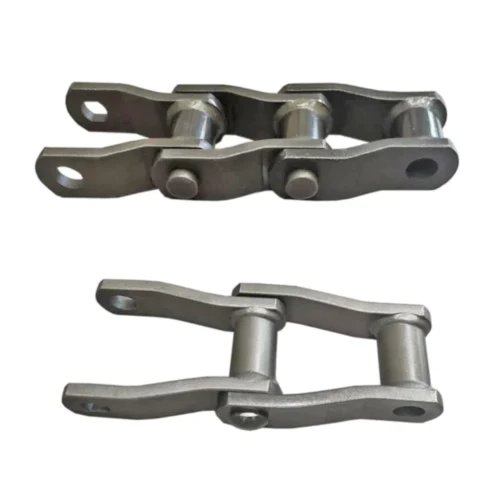WH78 weld mill chain is a crucial component in various industrial applications. However, when it comes to considering the environmental impact of the chain, there are several factors to keep in mind. In this article, we explore the various environmental considerations for WH78 weld mill chain and how manufacturers can address them.
1. Material Sourcing
The environmental implications of material sourcing cannot be overstated. The production of WH78 weld mill chain requires raw materials such as steel, which can have significant environmental impacts. Steel production is known to generate high levels of carbon dioxide emissions, contributing significantly to climate change.
To mitigate the environmental impact of material sourcing, manufacturers must adopt sustainable sourcing practices. This includes using recycled materials and ensuring that the raw materials are sourced from responsible suppliers who follow eco-friendly processes.

2. Energy Consumption
The production of WH78 weld mill chain requires significant amounts of energy. Energy-intensive processes such as welding and heat treatment require large amounts of electricity, which can increase the carbon footprint of the chain.
Manufacturers must adopt energy-efficient production processes to reduce energy consumption and, consequently, the environmental impact of WH78 weld mill chain production. This includes using renewable energy sources such as wind, solar, or hydroelectric power to power production processes.

3. Waste Management
During the production of WH78 weld mill chain, various waste materials such as metal scraps, wastewater, and packaging materials are generated. These waste materials can have significant environmental impacts if not managed properly.
Manufacturers must implement sustainable waste management practices, such as recycling and proper disposal of waste materials, to mitigate the environmental impact of waste generation during WH78 weld mill chain production.

4. Packaging
Packaging is an essential component of the supply chain for WH78 weld mill chain. However, packaging materials such as plastic, bubble wrap, and cardboard can have significant environmental impacts.
Manufacturers must adopt sustainable packaging practices, such as using eco-friendly materials and reducing the amount of packaging used, to mitigate the environmental impact of packaging materials.
Sprockets for WH78 Weld Mill Chains
عجلات مسننة play an essential role in the performance of WH78 weld mill chains. The right sprocket can enhance the efficiency and durability of the chain, thereby reducing the environmental impact of the industrial application in which the chain is used.
At Everpower, we offer a wide range of sprockets for WH78 weld mill chains. Our sprockets are made using high-quality materials and undergo rigorous quality control processes to ensure maximum performance, durability, and minimal environmental impact.

Our commitment to providing cost-effective solutions and exceptional service makes us the ideal choice for businesses seeking value and performance. Contact us today to explore our WH78 weld chain and sprocket products.

الأسئلة والأجوبة
Q: What makes WH78 weld mill chain eco-friendly?
A: WH78 weld mill chain can be made eco-friendly through sustainable sourcing practices, energy-efficient production processes, sustainable waste management, and eco-friendly packaging practices.
Q: What are some eco-friendly alternatives to WH78 weld mill chain?
A: Some eco-friendly alternatives to WH78 weld mill chain include biodegradable chains made from plant-based materials and recycled chains made from scrap metal.
Q: What is the expected lifespan of WH78 weld mill chain?
A: The expected lifespan of WH78 weld mill chain depends on several factors, including the application, maintenance practices, and environmental conditions. However, with proper maintenance and care, WH78 weld mill chain can last for many years.
Edited by Zqq.
